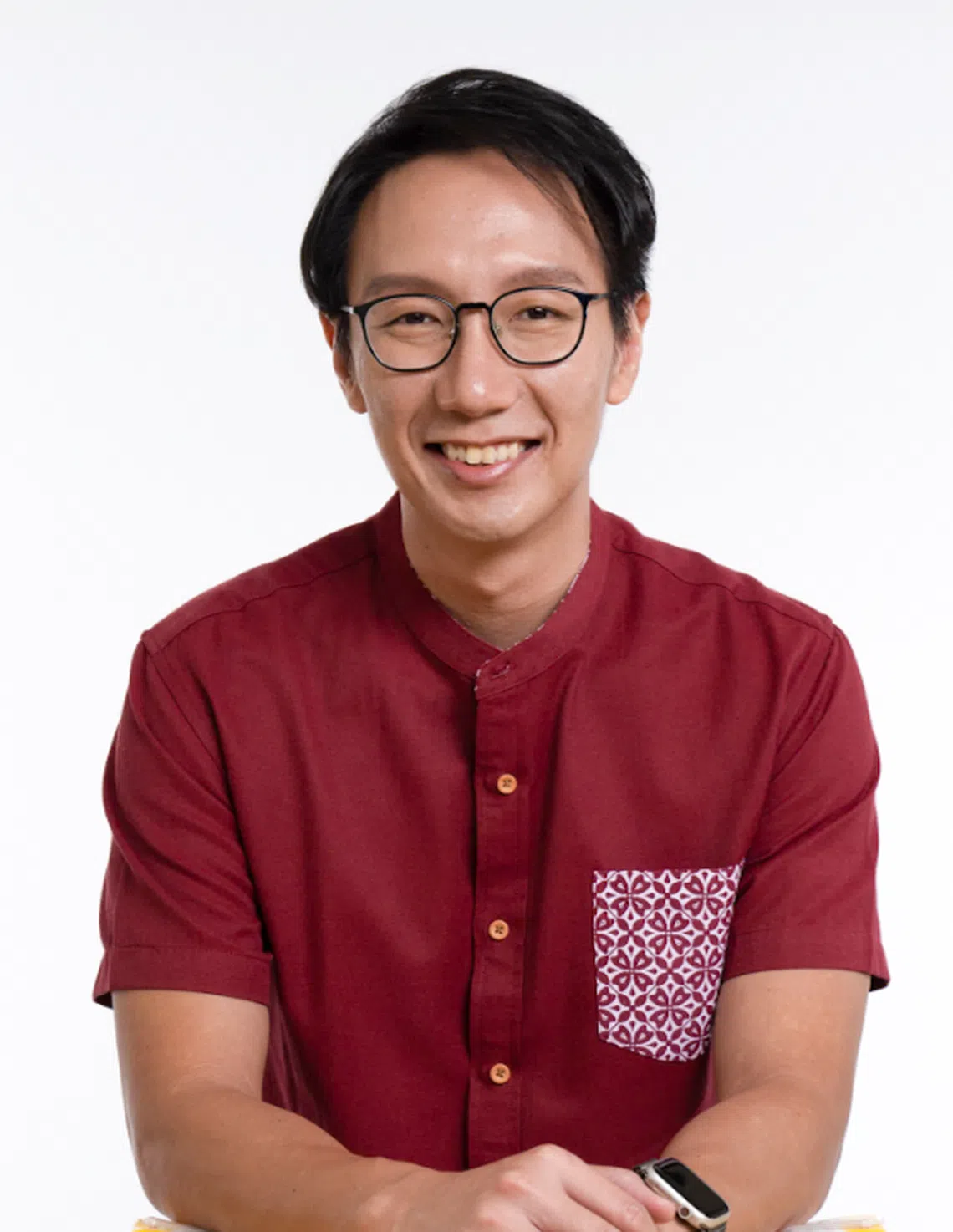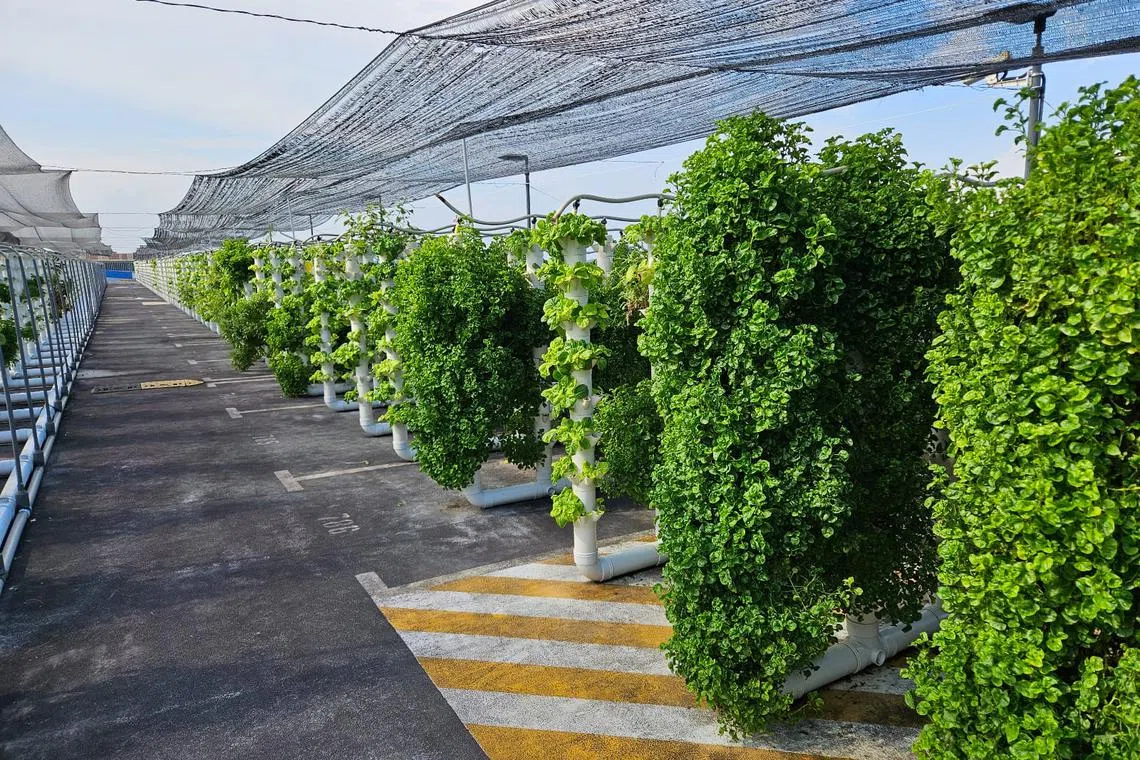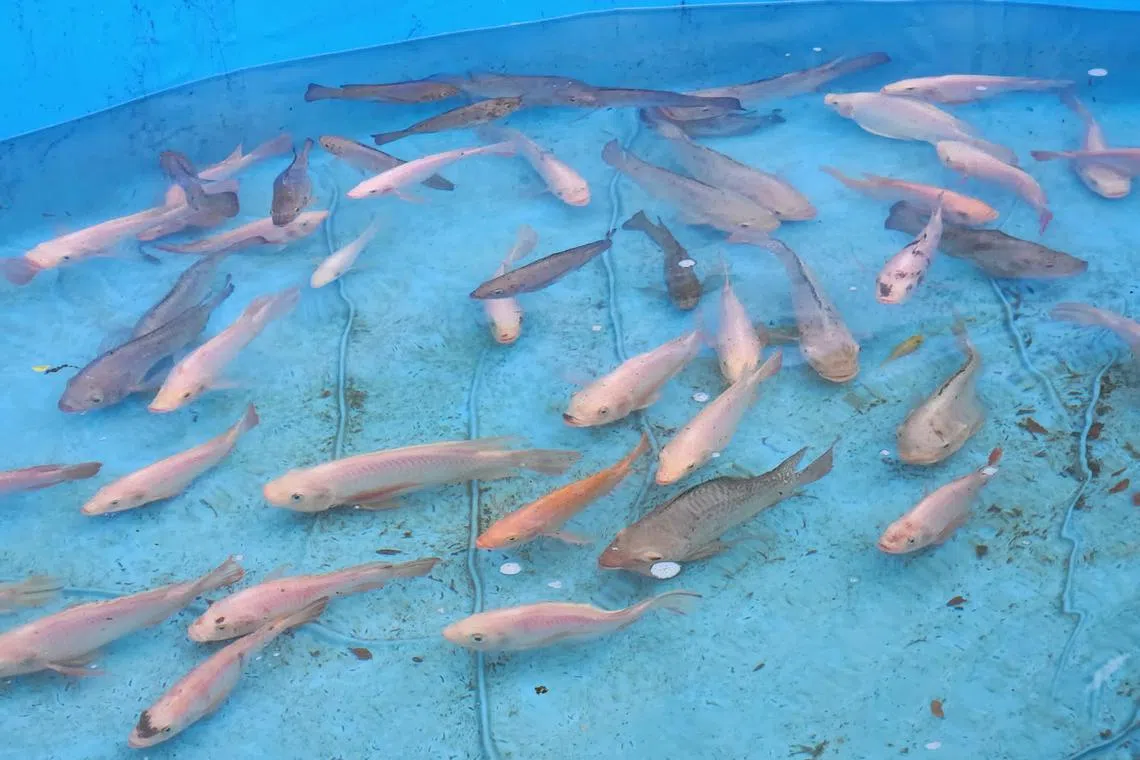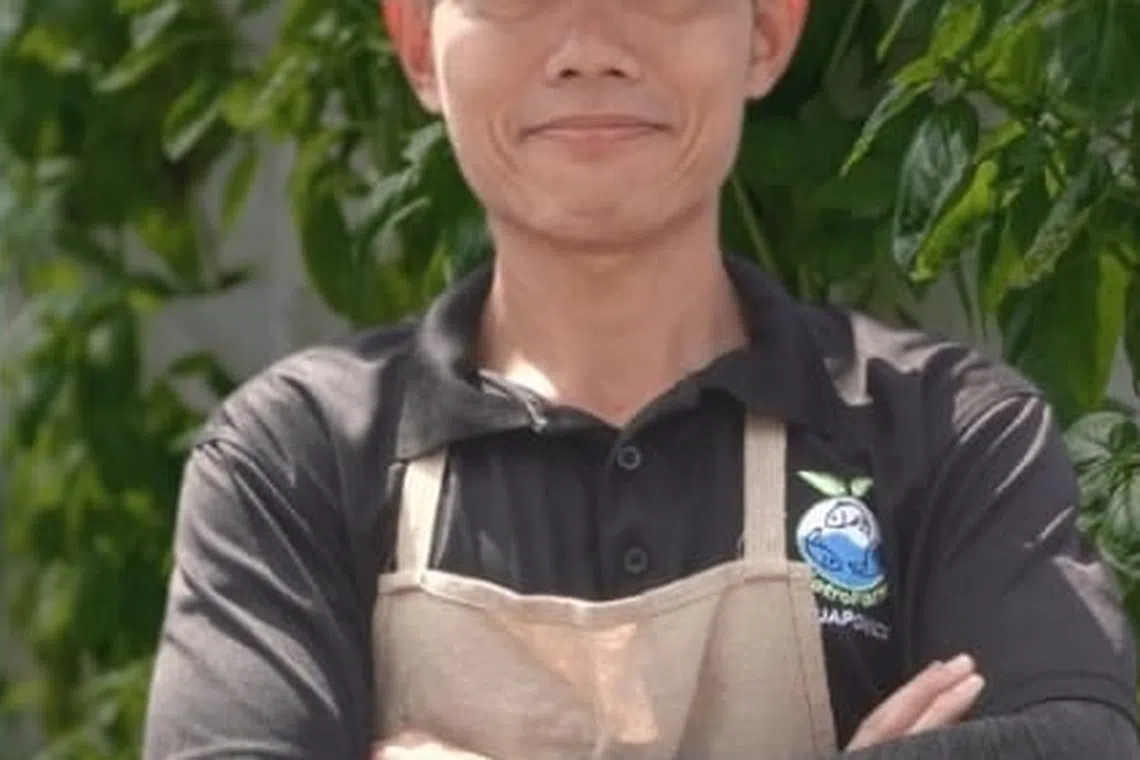Second lease of life for food waste
A tie-up between a fish farm and a social enterprise is turning food waste into animal feedstock, and fish waste into nutrients for growing vegetables

IF AN aquaponics farm depends mostly on feed from overseas, then the risk is that it may not always be able to guarantee its output, especially during a crisis.
This was keenly felt by Brendan Toh and Chris Toh, the directors of urban farming company Metro Farm, when Covid-19 struck in 2020.
Their aquaponics farm has hundreds of fish, mostly tilapias, whose waste is converted into nutrients to grow vegetables. When the pandemic struck and fish feed – usually sourced from other countries – could not enter Singapore, the company was in a quandary.
“At that time, we were thinking… what happens if we can’t find fish feed? (Do we) feed (them) bread?” said Chris Toh. “But that is not encouraged by (the Singapore Food Agency). Then what are we going to do?”
As an interim measure, the farm reared its own black soldier flies and worms as fish feed. However, it would be operationally challenging when the farm’s production ramped up due to the need for a larger space.
The situation also made the directors realise the importance of having their own raw materials.
Navigate Asia in
a new global order
Get the insights delivered to your inbox.

Reducing the carbon footprint
Thus, when the opportunity to work with social enterprise Life Lab Resources came, they jumped at it.
Set up in December 2022 by Edward Chia – also co-founder of social enterprise Timbre Group – the company aims to close the food loop by converting food waste back into food. It also does its part for Singapore’s “30 by 30” mission to produce 30 per cent of the country’s nutritional needs by 2030.
Chia said: “Running Timbre as the co-founder, I saw how much food (waste) there was within the (food and beverage) industry. (It was therefore a) personal decision to set up a company that makes an impact on the environment.”
The Holland-Bukit Timah GRC Member of Parliament added that food waste recycling is very low in Singapore, and so he saw an opportunity to upcycle food waste into animal feed.
He said: “As far as we know, we are the only company that has the technology and regulatory approvals to convert mixed food waste into aquaculture feed, thereby closing the food loop.”
On its website, the National Environment Agency said that in 2023, 755,000 tonnes of food waste was generated. Out of this, only 132,000 tonnes – or 18 per cent – was recycled.
Life Lab reduces its carbon footprint in two ways – reducing haulage and directing food waste away from incinerators, said Chia.
Furthermore, with the company’s WasteMaster, an on-site food waste processing system, food waste can be treated – while preserving its nutritional value. It becomes a dry and inert substrate that can be stored for much longer. Its volume is also reduced by 80 per cent, slashing haulage frequency and storage space, and significantly reducing carbon emissions.
This material can also be reused to make nutrient-rich feedstock in the food production ecosystem, such as commercial-grade fish feed at Life Lab’s biorefinery.

Metro Farm is the first local farm that Life Lab is collaborating with, and their partnership is still nascent, at just over 100 days.
The first 30 days were a trial, Chia said. “We palletised the feed on their farm itself… and checked the fish mortality rate, pH value and vegetable growth rate, (among other things).”
Laughing, he added: “I told (them): I could kill all your fish, you know? Are you OK with it? They said: ‘Sure, let’s try’.”
Of course, that did not happen. Chia said the mortality rate fell instead.
Today, Life Lab runs its biorefinery with a licence from the National Environment Agency. The Singapore Food Agency has also granted approval for the company to begin commercialising its feed and offtaking Metro Farm’s produce.
Last year, it also received the DBS Foundation Grant, enabling it to scale up its operations.
Among the challenges he has faced on this journey, Chia said the ongoing operational difficulty is in ensuring that the processes are optimised, as the WasteMaster can tolerate only a certain amount of contaminants. The more contaminants there are, the smaller the yield.
Life Lab also does more than provide Metro Farm with sustainable fish feed. It is also in talks to pull in existing clients such as Marina Bay Sands and Fairmont as purchasers of the vegetable produce – of which the farm turns out about 60 kg per day.
“The point to note is that Metro Farm is a commercial one,” said Chia, noting that their partnership will help Life Lab to scale.
“At the end of the day, it is about scalability. We want to make sure we close the food loop, (so we) are in talks with existing clients such as Fairmont (Hotel) to see how they can offtake the produce.”
He added: “By transforming food waste back into food or feed matter, we solve both the food waste problem and improve our food security... So that is our mission statement, converting food waste back to food and closing the food loop.”

When asked why they chose mostly tilapias for their aquaponics projects, Chris Toh of Metro Farm cited the fish’s hardier nature and higher breeding success rates.
There is also an additional benefit. The director added that the fish which have been given feed from Life Lab produce waste which has better quality nutrients, which in turn yields higher quality vegetables, in terms of colour and size.
“If we are going to feed livestock, choose one that has the least carbon impact,” Chia said, emphasising that Life Lab’s mission is to do good for the environment. “And if you look at the different livestock, the ones that have the least carbon impact on the environment are actually fish.”
Cost competitive
He added: “From a business perspective, fish feed has the highest economic value compared to other types of feed, for now.”
By producing the fish feed locally, Metro Farm has also managed to stay cost competitive.
“Though we are 100 per cent pesticide-free… how many (people consider that) over price?” Chris Toh said, highlighting that Metro Farm’s proprietary aquaponics farming system allows it to offer the produce at prices comparable to those of imported vegetables, but with better quality and farming control.

The farming sector has been hit with a spate of closures in recent years – from organic vegetable farm Fire Flies Health Farm in 2022, to local indoor farm IFFI, which shut down in May this year.
Chris Toh said that some of these farms faced issues as they were aiming for high-technology gadgets from the start, which required plenty of specialised manpower, high startup capital and upkeep cost.
He added that some of them relied too much on grants to run their farms, which was not sustainable, especially without proper planning.
Looking to the future, Metro Farm’s duo intend to consolidate their farm sites and expand to bigger premises.
“Having smaller sites creates more overheads and quality control is more of a challenge. We are also collaborating with other companies and tertiary institutions such as Temasek Polytechnic and Singapore Institute of Technology to do further tech research,” said Chris Toh.
The farm has also been in the black since 2020 – four years after it was set up – and Chris Toh said that with the collaboration, more profits are expected in the coming year.
Chia added that Life Lab will continue helping Metro Farm expand its client base by tapping its own – which includes international hotel chains and large catering firms.
“These are business discussions that are ongoing, and that’s how we see (ourselves as providing) value beyond just (feed supply) to the farmers.”
Decoding Asia newsletter: your guide to navigating Asia in a new global order. Sign up here to get Decoding Asia newsletter. Delivered to your inbox. Free.
Copyright SPH Media. All rights reserved.

